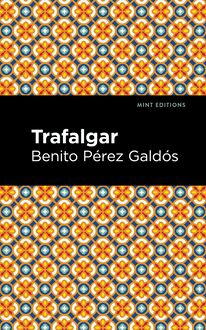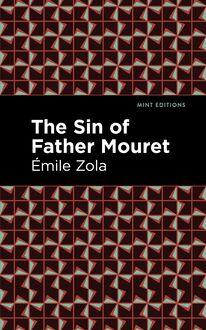-
 Univers
Univers
-
 Ebooks
Ebooks
-
 Livres audio
Livres audio
-
 Presse
Presse
-
 Podcasts
Podcasts
-
 BD
BD
-
 Documents
Documents
-
- Cours
- Révisions
- Ressources pédagogiques
- Sciences de l’éducation
- Manuels scolaires
- Langues
- Travaux de classe
- Annales de BEP
- Etudes supérieures
- Maternelle et primaire
- Fiches de lecture
- Orientation scolaire
- Méthodologie
- Corrigés de devoir
- Annales d’examens et concours
- Annales du bac
- Annales du brevet
- Rapports de stage
La lecture à portée de main

Vous pourrez modifier la taille du texte de cet ouvrage
Découvre YouScribe en t'inscrivant gratuitement
Je m'inscrisDécouvre YouScribe en t'inscrivant gratuitement
Je m'inscrisEn savoir plus
Vous pourrez modifier la taille du texte de cet ouvrage
En savoir plus

Description
Jenny (1911) is a novel by Norwegian writer Sigrid Undset. Published during the author’s social realist phase, a period in which her writing focused on the lives of everyday Norwegians, Jenny is a moving portrait of idealism and ambition and a tragic tale of talent gone to seed. Although Undset’s later fiction—inspired by her conversion to Catholicism—won her the 1928 Nobel Prize in Literature, her earlier work has remained essential to her legacy.
Finding herself uninspired in her native Norway, Jenny Winge, an idealistic and talented painter, moves to Rome in order to further her artistic career. There, she finds not only success, but a fiancé with whom she envisions sharing a life and family. Moved by hidden desires, however, Jenny strikes up an affair with the man’s father that leaves her pregnant, disgraced, and alone. Determined as ever despite being shaken from her path as an artist, Jenny determines to raise the child by herself, forsaking convention while simultaneously risking her life and the life of her baby. From artistic achievement to mere independence, Jenny is forced to drastically shift her ambitions, to remain unbroken in a world that seems intent on breaking every hope she holds. Jenny is a realist novel that takes an unsparing look at the role of women in society while illuminating the struggles a young artist faces on the path to success and independence.
With a beautifully designed cover and professionally typeset manuscript, this edition of Sigrid Undset’s Jenny is a classic of Norwegian literature reimagined for modern readers.
Sujets
Informations
| Publié par | Mint Editions |
| Date de parution | 23 février 2021 |
| Nombre de lectures | 1 |
| EAN13 | 9781513276939 |
| Langue | English |
| Poids de l'ouvrage | 2 Mo |
Informations légales : prix de location à la page 0,0500€. Cette information est donnée uniquement à titre indicatif conformément à la législation en vigueur.
Extrait
Jenny
Sigrid Undset
Jenny was first published in 1911.
This edition published by Mint Editions 2021.
ISBN 9781513271934 | E-ISBN 9781513276939
Published by Mint Editions ®
minteditionbooks.com
Publishing Director: Jennifer Newens
Design & Production: Rachel Lopez Metzger
Project Manager: Micaela Clark
Translated by W. Emmé
Typesetting: Westchester Publishing Services
C ONTENTS P ART O NE I II III IV V VI VII VIII IX X XI P ART T WO I II III IV V VI VII VIII IX X P ART T HREE I II III IV V VI VII VIII IX X XI XII
PART ONE
I
A s helge Gram turned the corner into Via Condotti in the dusk a military band came down the street playing “The Merry Widow” in such a crazy, whirling time that it sounded like wild bugle calls. The small, dark soldiers rushed past in the cold afternoon, more like a Roman cohort intent on attacking barbarian hosts than peaceful men returning to their barracks for supper. That was perhaps the cause of their haste, Helge thought, smiling to himself, for as he stood there watching them, his coat-collar turned up for the cold, a peculiar atmosphere of history had pervaded him—but suddenly he found himself humming the same tune, and continued his way in the direction where he knew the Corso lay.
He stopped at the corner and looked. So that was the Corso—an endless stream of carriages in a crowded street, and a surging throng of people on a narrow pavement.
He stood still, watching the stream run past him, and smiled at the thought that he could drift along this street every evening in the dusk among the crowds, until it became as familiar to him as the best-known thoroughfare of his own city—Christiania. He was suddenly seized with the wish to walk and walk—now and all night maybe—through all the streets of Rome, for he thought of the town as it had appeared to him a while ago when he was looking down on it from Pincio, while the sun was setting.
Clouds all over the western sky, close together like small pale grey lambkins, and as the sun sank behind him it painted their linings a glorious amber. Beneath the pale skies lay the city, and Helge understood that this was the real Rome—not the Rome of his imagination and his dreams, but Rome as she actually was.
Everything else he had seen on his journey had disappointed him, for it was not what he had imagined at home when he had been longing to go abroad and see it all. One sight at last was far beyond his dreams, and that was Rome.
A plain of housetops lay beneath him in the valley, the roofs of houses new and old, of houses high and low—it looked as if they had been built anywhere and at any time, and of a size to suit the need of the moment. In a few places only a space could be seen between the mass of housetops, as of streets. All this world of reckless lines, crossing each other in a thousand hard angles, was lying inert and quiet under the pale skies, while the setting sun touched the borders of the clouds with a tinge of light. It was dreaming under a thin veil of white mist, which no busy pillar of smoke dared penetrate, for no factory chimney could be seen, and no smoke came from a single one of the funny little chimney pipes protruding from the houses. The round, old, rust-brown tiles were covered by greyish moss, grass and small plants with yellow blossoms grew in the gutters; along the border of the terraces the aloes stood immovably still in their tubs, and creepers hung in dead cascades from the cornices. Here and there the upper part of a high house rose above its neighbour, its dark, hollow windows staring at one out of a grey or reddish-yellow wall, or sleeping behind closed shutters. Loggias stood out of the mist, looking like parts of an old watchtower, and small summer-houses of wood or corrugated iron were erected on the roofs.
Above it all masses of church cupolas were floating—the huge, grey one, far on the other side of what Helge supposed to be the river, was that of St. Peter.
Beyond the valley, where the roofs covered the silent city—it well deserved the epithet “eternal” tonight—a low hill stretched its longish back toward the skies, carrying on the far-away ridge an avenue of pines, the foliage of which formed one large mass above the row of slender trunks. And behind the dome of St. Peter the eye was arrested by another hill with villas, built among pines and cypresses. Probably Monte Mario.
The dark leaves of the holly formed a roof over his head, and behind him a fountain made a curiously living sound as the water splashed against the stone border, before flowing into the basin beneath it.
Helge whispered to the city of his dreams, whose streets his feet had not yet touched, whose houses did not harbour one single soul he knew: “Rome—Rome—eternal Rome.” He was suddenly struck by his own loneliness and startled at his emotion, though he knew that there was nobody to witness it, and, turning round, he hurried down the Spanish stairs,
And now when he stood at the corner of Condotti and Corso he experienced a quaint and yet pleasant anxiety at the thought of mixing with those hustling crowds and finding his way in the strange city—to wander through it as far as Piazza San Pietro.
As he was crossing the street two young girls passed him. They looked like Norwegians, he thought, with a slight thrill of pleasure. One of them was very fair and wore light-coloured furs.
It was a joy to him even to read the names of the streets carved in clear, Latin type on white marble slabs set in the corners of the houses.
The street he took ran into an open space near a bridge, on which two rows of lanterns burned with a sickly, greenish flame in the pale light pouring down from the restless sky. A low parapet of stone ran along the waterline, bordered by a row of trees with faded leaves and trunks, dropping their bark in big white flakes. On the opposite side of the river the street lamps were burning among the trees, and the houses stood out black against the sky, but on this side the twilight still flickered on the window-panes. The sky was almost clear now, and hung transparent and greenish blue over the hill with the pine avenue, with here and there a few reddish, threatening, slowly moving clouds.
He stopped on the bridge and looked down into the Tiber. How dull the water was! It flowed on rapidly, reflecting the colours of the evening skies, sweeping twigs and gravel and bits of wood on its way between the stone walls. A small staircase on the side of the bridge led down to the water’s edge. Helge thought how easy it would be to walk down the steps one night, when one was tired of everything—had any ever done so? he wondered.
He asked a policeman the way to St. Peter’s cathedral in German; the man answered him first in French and then Italian, and when Helge repeatedly shook his head, he spoke French again, pointing up the river. Helge turned in that direction.
A huge, dark stone erection stood out against the sky, a low, round tower with a jagged crest and the jet-black silhouette of an angel on top. He recognized the lines of the San Angelo fort, and went close up to it. It was still light enough for the statues by the bridge to show up yellow in the twilight, the red skies were still mirrored in the flowing waters of the Tiber, but the street lamps had gained power, and threw out paths of light across the river. Beyond the San Angelo bridge the electric tramcars with illuminated windows rolled over the new iron bridge, throwing white sparks from the connecting wires.
Helge took off his hat to a man:
“ San Pietro, favorisca? ”
The man pointed with his finger and said something Helge did not understand. He turned into a dark and narrow street which, with a sensation of joy, he almost thought he recognized, for it was exactly like the Italian street of his imagination: shop after shop full of curios. He gazed into the poorly lit windows. Most of the things were rubbish—those dirty strips of coarse white lace hanging on a string were surely not Italian handiwork. There were bits of pottery exhibited in dusty box-lids and small bronze figures of a poisonous green, old and new brass candlesticks and brooches with heaps of stones that looked far from genuine. Yet he was seized by a senseless wish to go in and buy something—to inquire, to bargain, and to purchase. Almost before he knew it, he had entered a small, stuffy shop filled with all sorts of things. There were church-lamps hanging from the ceiling, bits of silk with gold flowers on red and green and white ground, and broken pieces of furniture.
Behind the counter a youth with a dark complexion and a bluish, unshaven chin was reading. He talked and asked questions while Helge pointed at various articles, “ Quanta ?” The only thing he understood was that the prices were excessive, but one ought not to buy until one knew the language well enough to bargain with them.
Several pieces of china were standing on a shelf, rococo figures and vases with sprays of roses, which looked quite modern. Helge seized one at random and placed it on the counter: “ Quanta ?”
“ Sette ,” said the youth, and spread out seven fingers.
“ Quattro ,” said Helge, holding out four fingers in a new brown glove, and felt quite pleased with himself at this leap into the foreign language. He did not understand one word of the man’s arguments, but each time he finished talking Helge raised his four fingers and repeated his quattro, adding with a superior air: “ Non antica !”
But the shopkeeper protested, “ Si, antica .” “ Quattro ,” said Helge again—the man had now only five fingers in the air—and turned towards the door. The man called him back, accepting, and Helge, feeling highly pleased with himself, went out with his purchase wrapped up in pink tissue paper.
He perceived the dark mass of the church at the bottom of the street outlined against the sky, and walked on. He hurried across the first part of the piazza with its lighted shop wind
Attention
En entrant sur cette page, vous certifiez :
- 1. avoir atteint l'âge légal de majorité de votre pays de résidence.
- 2. avoir pris connaissance du caractère érotique de ce document.
- 3. vous engager à ne pas diffuser le contenu de ce document.
- 4. consulter ce document à titre purement personnel en n'impliquant aucune société ou organisme d'État.
- 5. vous engager à mettre en oeuvre tous les moyens existants à ce jour pour empêcher n'importe quel mineur d'accéder à ce document.
- 6. déclarer n'être choqué(e) par aucun type de sexualité.
YouScribe ne pourra pas être tenu responsable en cas de non-respect des points précédemment énumérés. Bonne lecture !
-
 Univers
Univers
-
 Ebooks
Ebooks
-
 Livres audio
Livres audio
-
 Presse
Presse
-
 Podcasts
Podcasts
-
 BD
BD
-
 Documents
Documents
-
Jeunesse
-
Littérature
-
Ressources professionnelles
-
Santé et bien-être
-
Savoirs
-
Education
-
Loisirs et hobbies
-
Art, musique et cinéma
-
Actualité et débat de société
-
Jeunesse
-
Littérature
-
Ressources professionnelles
-
Santé et bien-être
-
Savoirs
-
Education
-
Loisirs et hobbies
-
Art, musique et cinéma
-
Actualité et débat de société
-
Actualités
-
Lifestyle
-
Presse jeunesse
-
Presse professionnelle
-
Pratique
-
Presse sportive
-
Presse internationale
-
Culture & Médias
-
Action et Aventures
-
Science-fiction et Fantasy
-
Société
-
Jeunesse
-
Littérature
-
Ressources professionnelles
-
Santé et bien-être
-
Savoirs
-
Education
-
Loisirs et hobbies
-
Art, musique et cinéma
-
Actualité et débat de société
- Cours
- Révisions
- Ressources pédagogiques
- Sciences de l’éducation
- Manuels scolaires
- Langues
- Travaux de classe
- Annales de BEP
- Etudes supérieures
- Maternelle et primaire
- Fiches de lecture
- Orientation scolaire
- Méthodologie
- Corrigés de devoir
- Annales d’examens et concours
- Annales du bac
- Annales du brevet
- Rapports de stage















